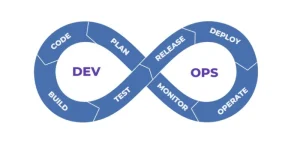In the fast-changing world of software development, speed and efficiency are essential. Teams need to deliver high-quality software quickly, and this is where DevOps plays a crucial role. By combining development and operations practices, DevOps helps teams work together seamlessly. One of its biggest benefits is how it boosts developer productivity. If you’re considering a DevOps Training in Bangalore, you’ll learn how this approach can streamline tasks and help developers focus on what they do best—writing code.
1. Automation for Efficiency
One of the main ways DevOps improves productivity is through automation. Developers often spend a lot of time on repetitive tasks like testing, deployment, and environment setup. DevOps tools can automate these tasks, allowing developers to focus on more important work like coding and innovation.
Examples of Automation in DevOps:
– Continuous Integration (CI): This process automatically tests and integrates new code into the project, making it easier for developers to catch bugs early.
– Continuous Deployment (CD): Once the code passes tests, it’s automatically deployed to production, reducing the need for manual intervention.
– Infrastructure as Code (IaC): With IaC, developers can easily create and manage infrastructure using simple scripts.
By removing manual steps, developers can be more productive and spend more time on creative tasks. A DevOps Training in Marathahalli will introduce you to these automation techniques, making you more efficient in your work.
2. Better Collaboration
DevOps breaks down the barriers between development and operations teams, encouraging them to work together. This collaboration helps teams understand each other’s challenges and work toward common goals. When developers, operations, and other team members communicate well, they can solve problems faster and prevent delays.
How Collaboration Improves Productivity:
– Teams can quickly identify and resolve issues together.
– There’s better alignment between development and operations goals.
– Fewer misunderstandings lead to faster decision-making.
With improved collaboration, developers can focus on building features instead of fixing communication issues. A AWS Training in Bangalore will teach you the importance of teamwork and how it drives productivity.
3. Faster Feedback Loops
In traditional software development, it can take a long time to get feedback on code. DevOps changes this by introducing faster feedback loops through automated testing and monitoring. This means developers get immediate insights into how their code is performing, allowing them to fix issues quickly.
How DevOps Speeds Up Feedback:
– Automated Testing: Tests run automatically whenever new code is added, giving instant feedback.
– Continuous Monitoring: DevOps tools monitor applications in real-time, alerting developers to any performance problems.
– Quick Deployments: Continuous deployment pipelines allow code to be moved from development to production in minutes.
Faster feedback means developers spend less time waiting and more time improving their code. An AWS Training in Marathahalli will help you master these practices, enabling you to work more efficiently.
- Higher Code Quality
DevOps also ensures higher code quality by integrating automated testing and code reviews into every stage of development. These practices help catch bugs early and maintain high standards across the entire codebase.
How DevOps Improves Code Quality:
– Automated tests run regularly, catching issues before they reach production.
– Tools for code reviews ensure that best practices are followed.
– Continuous integration makes sure that new code works well with the existing project.
By maintaining code quality, developers spend less time fixing bugs and more time creating new features. If you’re looking to enhance your skills in delivering quality software, a DevOps course is a great way to start.
5. Increased Ownership and Accountability
In a DevOps environment, developers are not only responsible for writing code but also for ensuring that it works well in production. This sense of ownership encourages developers to be more mindful of the quality and performance of their work.
Benefits of Increased Ownership:
– Developers are more invested in the success of the project.
– There’s a stronger focus on building reliable and scalable systems.
– Faster issue resolution, as developers can fix problems directly.
By taking ownership of their work, developers become more productive and deliver better results.
DevOps has transformed the way developers work, making them more productive by automating tasks, improving collaboration, and ensuring faster feedback. With DevOps, developers can focus on building high-quality software and delivering it faster. If you’re interested in learning more about these practices and boosting your productivity, consider enrolling in a Training Institute in Bangalore. You’ll gain the skills needed to excel in today’s competitive software development landscape.

